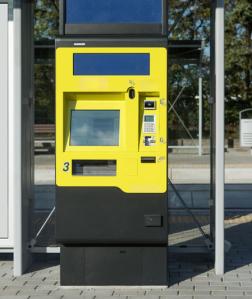Managing a marine fleet is no easy task, particular when it comes to ensuring the safety of crew and passengers, optimising fuel consumption and making sure cargo gets to its destination on time. Human error is thought to be a factor in up to 96% of maritime accidents. A study by AGCS of nearly 15,000 marine liability insurance claims between 2011 to 2016 revealed that human error was the main cause of 75% of all studied claims, equating to more than $1.6 billion in losses.
Navigation skills are complex, and sea and weather conditions are naturally difficult to anticipate and respond to accordingly.
A modern marine fleet management system plays a vital role in the operation of a ship in the Marine Vessel Industry.
It monitors the vessel’s behaviour and environmental conditions and predicts future behaviour to provide adaptive and optimised speed and route to optimise safety and efficiency.

Challenges:
One of the key challenges in marine fleet management is ensuring stable fleet operation in harsh and unpredictable environments. The computer systems used in or on a vessel face extreme exposure to the elements, especially salty sea water. To ensure vessel stability and safety, a waterproof ingress protected design is crucial to prevent electrical connections from corroding and failing.
Another challenge is ensuring high-speed connectivity, as modern marine fleet management systems sync to the cloud, allowing data to be accessed from anywhere in the world. For this reason, industrial systems that run on fleet management software must have high-speed connectivity, such as 4G LTE and WiFi.
The solution
The impressive Intel Apollo Lake ruggedised PC with IP67-rated waterproof design makes it a perfect fit for marine fleet management systems. It is integrated into an intuitive marine management system as a central control unit that collects and processes data from the onboard system. The system presents output to a compatible multi-function display, which needs to be sunlight readable, via Ethernet and uploads all data to a cloud platform through a 4G cellular network.

The intelligent system solution improves safety for crew and passengers, limiting the risk of severe accidents and injuries. As a result, the marine system solution has demonstrated a capability to reduce fuel consumption and carbon emissions by up to 25% and reduce dangerous shock and impact from wave slamming by up to 70%.
The PC can be seamlessly integrated into existing marine vessel’s systems and also supports industry-leading wide voltage and temperature to operate reliably outdoors. Additionally, the system has waterproof connectors to prevent any water from getting in, eliminating the risk of electrical connections corroding and the overall system failing.
Customisation to suit the application
This impressive PC is available read to use out of the box, but can also be customised to suit each application, including a rich I/O choice, wire lengths, outlet types.
Key Features:
- Ruggedised, IP67 grade enclosure
- Intel® Atom® Apollo Lake Processor
- Smart Vent (drains off water automatically)
- Wide temperature: -40°C to 70°C
- Wide voltage: 9~36V
- Up to 8GB DDR3L, 64G eMMC soldered down
- Optional WiFi, LTE, CanBus
- BIOS with security boot
- Long term availability of 15-year CPU life cycle until 2031
- Applications include industrial automation, outdoor use, and marine vessels



